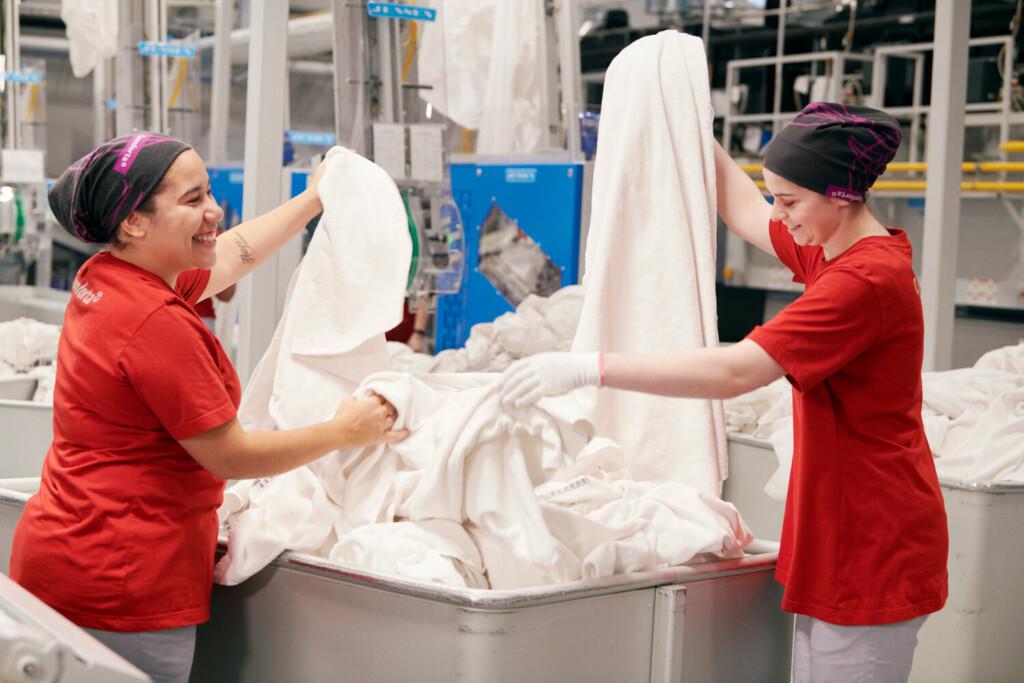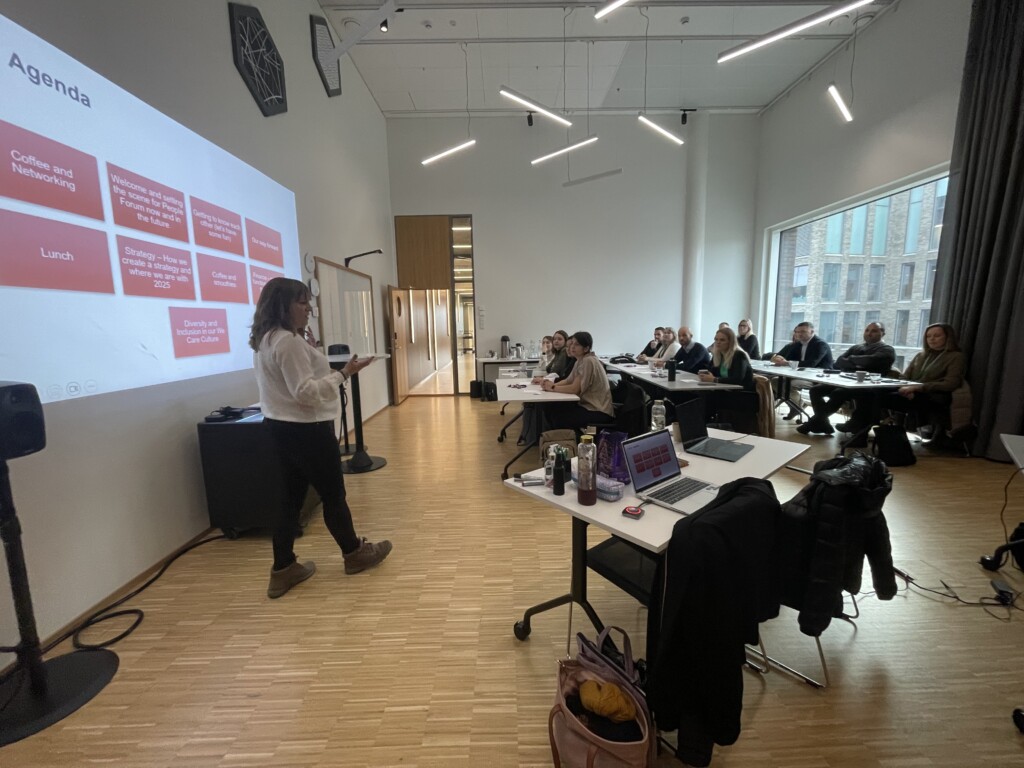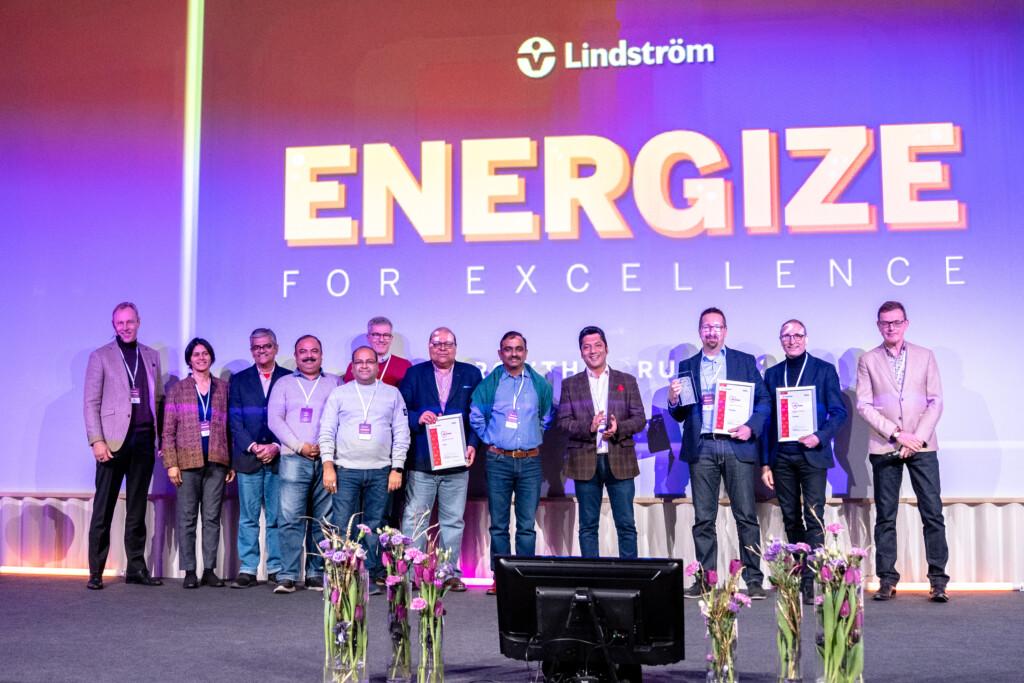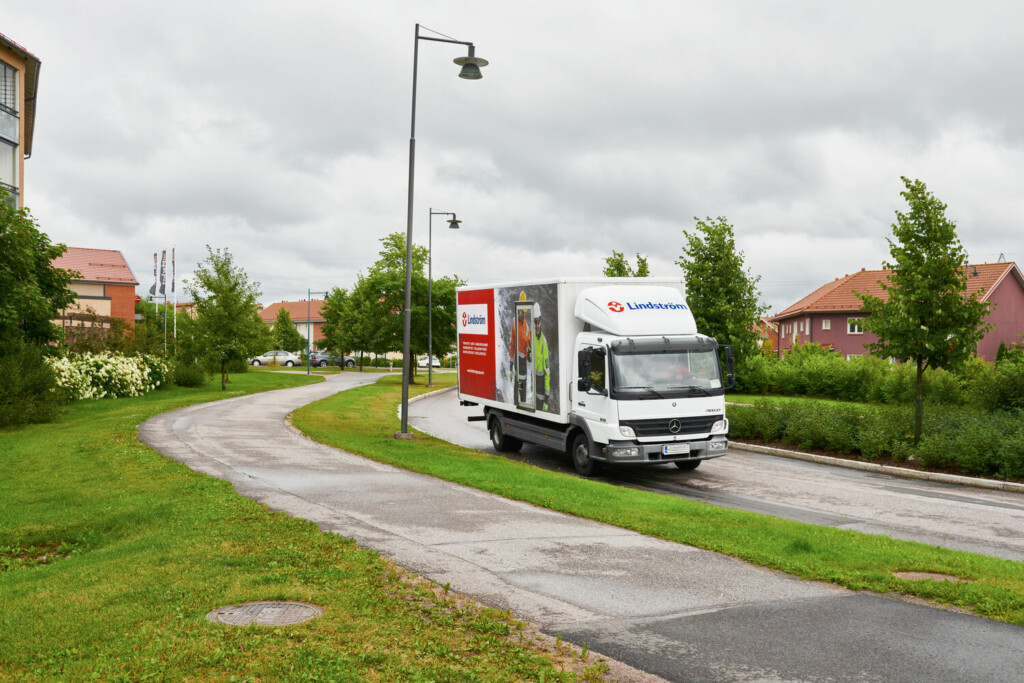
Leadership at Lindström: Cultivating the We Care culture
At the heart of our success and the leadership culture at Lindström lies a profound dedication to our core values. Our values are profitable growth, responsibility, long-term customer relationships, and enthusiasm for learning.
These values guide our company’s strategic decisions and serve as the foundation for our exceptional leaders. However, we don’t expect our leaders to figure it out alone. Instead, we invest heavily in fostering outstanding leadership.
We spoke with two of our esteemed leaders, Manuela Mamuzic from Croatia and Prashanth Bajaj from India, to hear more about their leadership values, experiences and journeys and the transformative impact of Lindström’s leadership principles on their work.
Leadership culture at Lindström: The ethos of growth and empowerment
Meet Manuela and Prashanth.
Manuela, a Croatian native, joined Lindström over a decade ago. Her journey with Lindström has taken her from being the first customer service rep and one of Lindström Croatia’s first employees to her current role as a team leader. She leads the work of her dynamic team of three, including herself. Manuela epitomises Lindström’s ethos of growth and empowerment.
“The size of the team or the country organisation doesn’t matter in terms of listening and hearing out each other, accepting each other’s opinions and building trust and loyalty within the company”, Manuela says confidently.
Prashanth, hailing from India, joined Lindström ten years ago as a business unit manager. Today, he is a business unit director overseeing six business units, with a team of over 350 employees under his guidance.
“I sleep well when I’m sure my employees are well employed and well led in their jobs. I take empowering my people very seriously,” he says.
Navigating cultural nuances in a global organisation
In a global organisation like Lindström, navigating cultural nuances is paramount to effective leadership. Manuela and Prashanth shed light on how cultural differences between Croatia, Finland and India influence their leadership styles.
Prashanth says things in India are often very ambiguous, unlike in Finland, where, for example, the sense of time differs greatly from India’s.
“Finnish people are very punctual. In Finland, 11 am is 11 am, whereas in India, it’s somewhere there. India is good at thriving in ambiguous situations. We can start from A and end up in C, even if we go all over the place in between. We groom our people to succeed this way”, Prashanth explains.
Manuela highlights the easy-going Croatian lifestyle.
“That’s why we appreciate the structure and support from the HQ”, she explains.
Both leaders resonate deeply with Lindström’s leadership principles, particularly the “We Care” principle, which forms the bedrock of their leadership philosophies.
For Manuela, trust and respect are non-negotiable, while Prashanth underscores the importance of empathy and collaboration in fostering a supportive work environment.
According to Prashanth, India has a history in being a very hierarchical in leadership style.
“This is changing though due to the influence of many international employers”, Prashanth explains.
Manuela learned this firsthand in February when the Croatian office welcomed three Indian colleagues: “Our cultural difference has been a shock for them, but our structured onboarding process helps them to adapt.”
Prashanth has another example: “Earlier, employees could not argue or go against their leader, but challenging your leader has become more accepted and makes the culture more collaborative, which I advocate as a leader.”
“Culture comes from how the leaders exhibit it. When I look at Juha (Laurio, our CEO), I do the same, and then my subordinates exhibit those signals from me”, Prashanth explains.
Social media, news, and all things global have also helped employees in India become more aware and adjust to more collaborative work. Prashanth states this is a welcome change and a way forward.
Purpose-driven culture enables us to navigate change more seamlessly
Leading teams amidst unprecedented challenges, such as the COVID-19 pandemic, tested the mettle of Lindström’s leaders.
Prashanth recalls how Lindström’s purpose-driven culture and open communication channels enabled the company to navigate the crisis more seamlessly.
“Being a purpose-driven organisation helped us communicate our purpose in helping for example, a vaccine company client to stay in business”, Prashanth states as an example.
Both Manuela and Prashanth agree Lindströms leadership principles and skills were tested during the pandemic.
“We all came out of our comfort zones and put in the extra effort to be proactive not reactive in areas such as open communication. Our HR systems also took a leap in supporting employees and leaders during the emergency situation”, Prashanth explains.
While the Indian office was able to stay open and in business, the Croatian government banned people from going to the office.
“Isolation was tough on our people, and that’s why we organised additional remote get togethers where we did not talk about work but met to stay connected on a more personal level”, Manuela explains.
What the Lindström leaders learned from the pandemic was the importance of being prepared for sudden or obvious changes in the world.
“We learned to pay attention – beyond norms – to building systems that help us be adaptive and transformative in change”, Prashanth says.
Leading Lindströmers successfully requires empathy
Manuela emphasized the importance of recognising and rewarding team members for their resilience and adaptability but also for good ideas or great projects.
“To me, a humble leader is not weak but has the confidence to recognize the value of others and give them credit”, she explains.
Recognizing our employees helps gain their trust, creates a safe environment and increases their motivation to perform and take on projects. The leadership culture at Lindström looks beyond profits, to our people.
But it is not all about rewarding. We also take seriously our responsibility to support the growth and development of our people through feedback, if they are behind targets and not performing.
“The key is to discuss behavior, not the person. We talk openly about how the behavior has affected themselves, the customers, colleagues and me as their leader”, Manuela explains.
And, it is not difficult because leaders at Lindström focus on building trust and a safe environment to also have those tougher conversations without fear and worry.
According to Manuela, the leadership culture at Lindström is a strong differentiator between us and the competition: “To lead like this requires empathy and understanding for the person.”
Being a great leader is a matter of wanting to be one
Manuela’s journey as a relatively new supervisor underscores the importance of continuous learning and self-development. She endeavours to inspire and empower her team members to excel through active listening and learning about one of her favorite subjects: emotional intelligence.
“My purpose is to inspire and empower my employees, co-create the future, and build the courage to take risks. My success is what we do together. I try to implement this in my work”, says Manuela.
How does Manuela keep herself motivated and up to date with it all?
Both Manuela and Prashanth think Lindström has created an exceptional development system for our leaders from growth forums to learning systems and learning from each other to a program collaborating with Helsinki-based Hanken University for a more structured leadership training.
“I read a lot of books and actively listen to my team and their thinking that I believe impacts the organisation. In addition, I like to talk to people who I think are successful in leading people”, Manuela adds.
As a leader, trust is everything to Manuela.
“Trust is a feeling to me. Do you feel respected and trusted? Do your people feel that you are honest with them as their leader? These are the important areas for me to develop and become great at. Being a great leader is the matter of wanting to be one,” Manuela explains. And she does want to be a great leader.
With his wealth of experience, Prashanth favors a leadership style called ‘liquid leadership’ tailored to his team members’ diverse needs. This style epitomises Lindström’s commitment to individual growth and development.
“Liquid leadership is a step up from situational leadership”, he explains and continues: “It looks at the dimension of the people, what stage they are in their career and life, and what type of leadership works best for each individual.”
He has learned that leaders older than himself often want to contribute to his vision and expect a more democratic leadership style. People who are newer to the company on the other hand, benefit better from a leadership style akin to coaching.
“Everyone is different in their development areas and strengths. As their leader, I think about how I can complement them”, Prashanth says.
In conclusion, Lindström’s global leaders like Manuela and Prashanth exemplify the company’s ethos of care, innovation, and growth.
Through their unwavering dedication to Lindström’s core values and leadership principles, they continue to inspire and uplift their teams, driving the company towards greater success.
When you are ready to become a great leader or learn from great leaders, join our journey of empowerment and growth.
Check out Lindström company page on LinkedIn to learn more about our inspiring leaders and career opportunities.
Connect with Prashanth on LinkedIn, or check out his book tip “Mindset: The New Psychology of Success” by Dr. Carol Dweck which discusses fixed vs growth mindsets.
Connect with Manuela on LinkedIn, or check out her top reading tips: Daniel Goleman: “Emotional intelligence” and Ken Blanchard: “Leading at a higher level”.






